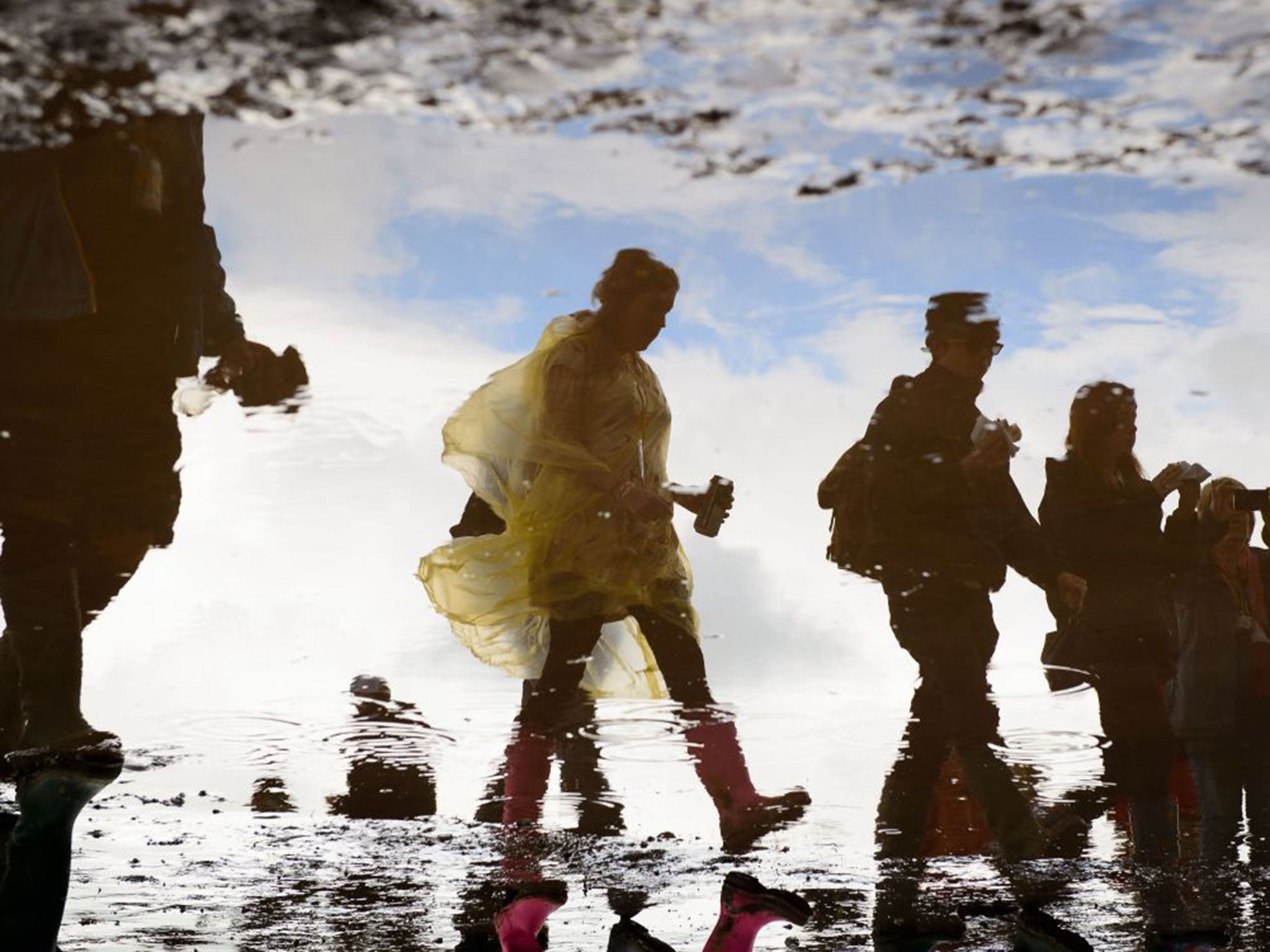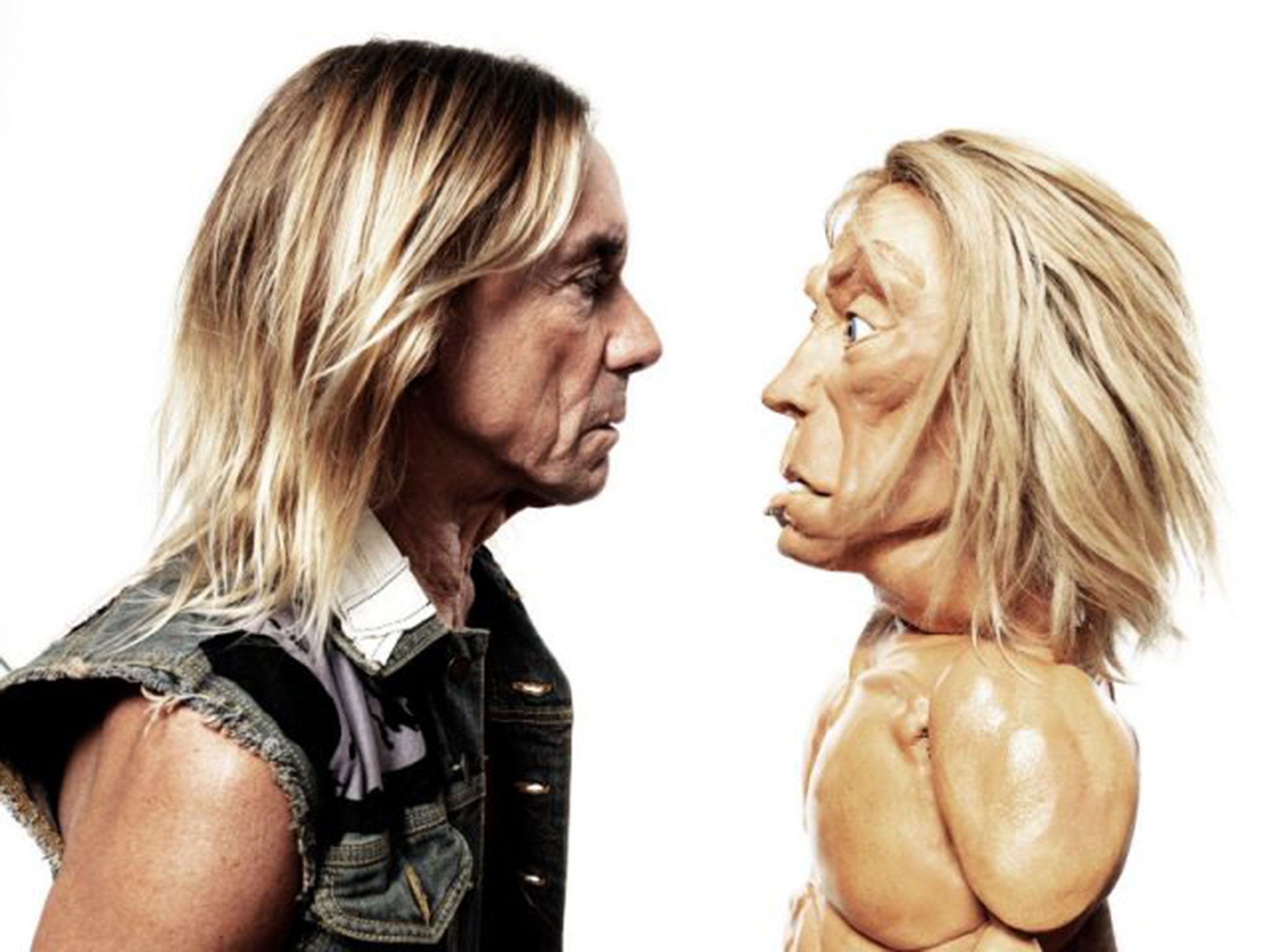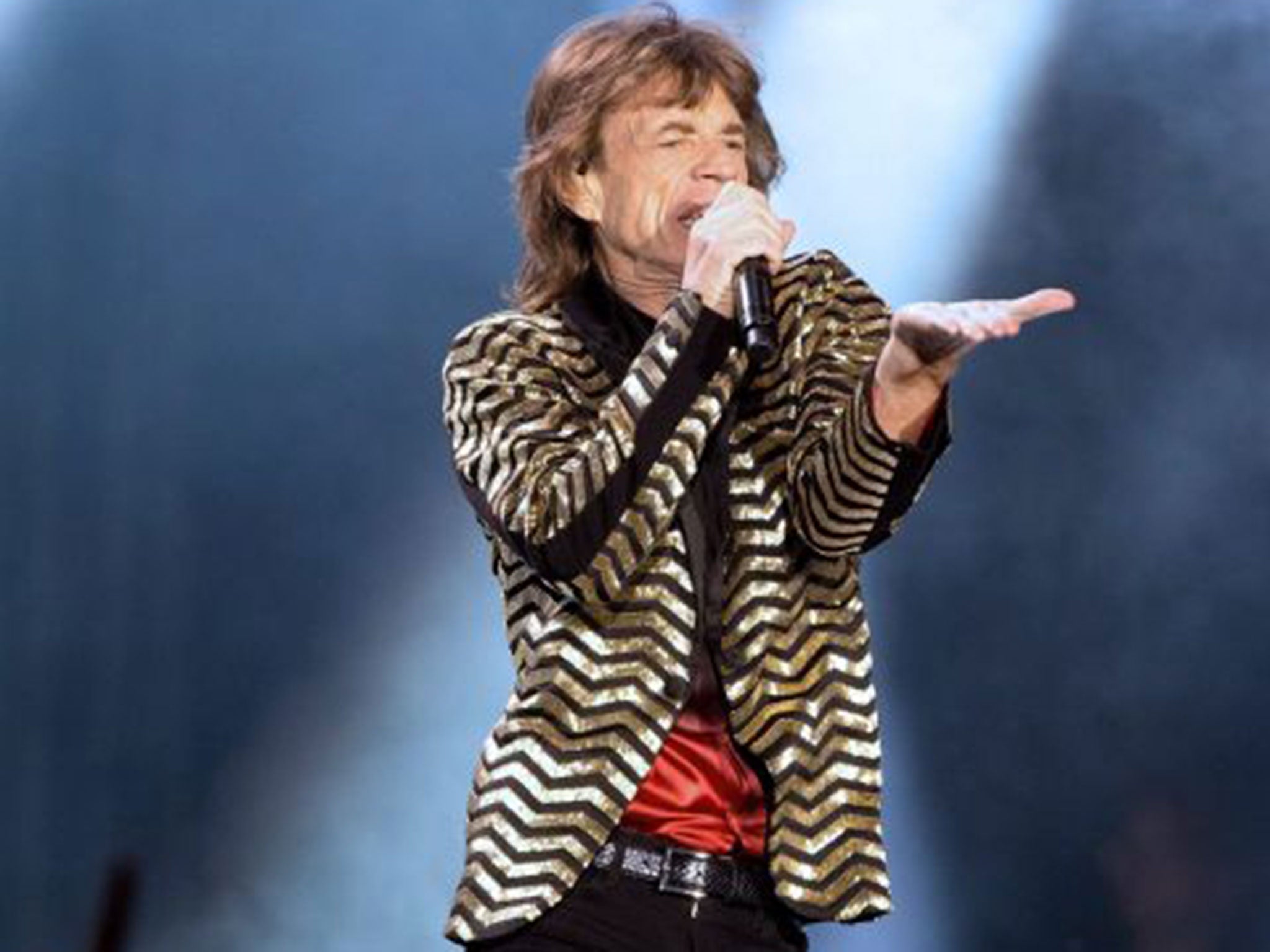Festival of finance: Glastonbury, your name is mud
In music as in books, the road from counter-cultural idealism to big business is a well-travelled one

A regular feature of the old-style New Musical Express, my teenage bible back in the late 1970s, was the cartoon strip filed each week by Tony Benyon. One of Benyon's finest moments, circa 1975, was a double-page pastiche of that year's Reading Festival, in which plain-clothes policemen planted drugs on unsuspecting rock fans and a bleary-eyed hippy staggered from his tent into a sea of liquefied mud to groan "This shit's like the First World War", only to be corrected by a bystander: "No man, they've been on already. This is Brass Gnat." And so, hearing of this year's Glastonbury row, it was to Mr Benyon that my thoughts inevitably returned.
There is no more deliciously ironic sight than the spectacle of something or someone that was once proudly counter-cultural mutating into an unashamed symbol of the modern establishment. The underground band from the Age of Aquarius re-emerging 40 years later to argue about who owns the name and gets the royalties from the box set; Iggy Pop advertising car insurance; Ozzy Osbourne appearing at Her Majesty's 2002 Jubilee concert: it is a considerable pantheon, but last week's dispute over the ethics of the Glastonbury line-up and indeed the whole cultural atmosphere surrounding the event placed it right up there with Mick Jagger's knighthood and John Lydon's butter commercials.
This, let us not forget, was a festival founded on political idealism, which enjoyed a partnership with Greenpeace and at one point in the 1980s donated funds to striking miners. Here in 2014, on the other hand, Bruce Dickinson of veteran heavy metal outfit Iron Maiden could be found disparaging it as "the most bourgeois thing on the planet", while the organiser, Emily Eavis, rejected an online campaign to remove Metallica from their Saturday night slot in protest at the singer's involvement with a bear-hunting documentary. "Every year we have people campaigning," she explained. "We can't get involved in other people's politics. If we did that we'd rule out most bands in the world."
Eavis is, of course, being faintly disingenuous here. Just as any piece of writing above the level of a railway timetable and any piece of music capable of being whistled in the street is in some sense political, in that it reflects the ideological assumptions of the person who wrote it, so the impresario who ushers that artefact into print or on to a stage is taking part in the political process which it represents. With or without Metallica or Bruce Dickinson, a 21st-century music festival has quite as many political implications as a Barbie doll or Michael Gove's education policies, and, however enthusiastically professed, its neutrality can only ever be paper-thin. How, for example, would Eavis feel about hiring a group which had performed for the British National Party or recorded a download entitled "Wogs go home"?

In some ways one would have felt more sympathy for the Glastonbury organisers if, in the manner of most prudent commercial organisations, they had simply shrugged and quietly observed that there were livings to be made here. As it is, the complaints about what was formerly a hotbed of quixotic hippydom being turned into a money-making exercise peopled by bear-slaughterers and misogynist rappers offer an uncannily resonant parable of the way in which the modern arts world works.
A world which, more to the point, is founded on paradox, and in which most of the cultural forecasts of the late 20th century have proved to be wildly inaccurate. To return to the landscapes of the late 1970s, one of the comforts of growing old is to discover just how wide of the mark all the techno-prophecy of one's youth turned out to be. Throughout my teens and twenties I was constantly being told that 20 years hence people would stop going to cinemas, cease to read books or work in offices. Oddly, none of these things has happened. One of the great mantras of the time was the threat posed to live music by vinyl ("Keep Music Live" read the sticker on my very first guitar case) and yet here we are, three and a half decades later, in a world where live music is more popular than ever.

Exactly the same point can be made of literature where, despite the widespread assumption that "entertainment" now tends to be sourced at the touch of a button from the depths of one's sofa, literary festivals currently take place in the United Kingdom at the rate of three a week. The punter, for so long written off by so many entertainment providers as a couch-potato, has turned out to be a figure of startling resource. On the other hand, what might be called "festival culture" in the UK is much older than the recent developments primed to sustain it. The Cheltenham literary festival, for example, dates from 1949, the Aldeburgh music festival from the 1950s, while the real impetus to groups of citizenry banding together to put art or music on stage probably dates from the Attlee government's last cultural gasp, the 1951 Festival of Britain.
Since that time a quantitative shift has invariably been followed by a qualitative shift. Internationally, the sanitisation of the music festival – which began when it was discovered that you could make money out of it and that the middle classes wouldn't put up with squalor – dates from the mid-1970s. It is instructive to examine the films of the Woodstock and Altamont festivals, separated by only a few months in the latter part of 1969. The former is the apotheosis of counter-cultural communality; the latter a nightmare of violence and rampaging Hell's Angels. Henceforth the future lay in security guards, proper toilets, transport there and back and the band coming on when advertised.

But where business led, embourgeoisement could only follow. The Victorian literary critic George Gilfillan once complained of the work of the Whig historian Thomas Babington Macaulay that "liberty" had ceased to be a mountain nymph and metamorphosed into the highly accomplished daughter of a nobleman living in Grosvenor Square. The same tugging free from original moorings has affected the Shelleyan imaginings of literature and rock music's former disinclination to give a damn about the man. Apart from the specialist offshoots, one stages a book festival or a pop event these days to cultivate and make money out of the more or less unquestioning middlebrow, middle-class taste. And so, the opening ceremony of the last international literary festival it was my privilege to attend featured platform appearances by Jeremy Paxman and Lord Ashdown, while the former poet laureate, Sir Andrew Motion, languished in the stalls.
By the same token, at the last rock festival I attended (Latitude, 2010) I ended up not writhing in the mosh pit but drinking a glass of champagne with Sebastian Faulks in the hospitality room. And what, the disinterested rock fan wonders, is wrong with that? Nothing, other than two of the art forms which one most valued – books and rock and roll – and which one most valued for their tendency to insubordination have, to use a phrase coined by Thom Gunn in his poem about Elvis Presley, revolted into style. Curiously enough, I came home from the supermarket the other day with a copy of the NME for my 18-year-old son. Here, inevitably, was a lavish "Glasto" spread. Would Jake Bugg steal the show? Could Arcade Fire top the Arctic Monkeys? Alas, there was no sign of Tony Benyon.
Join our commenting forum
Join thought-provoking conversations, follow other Independent readers and see their replies
Comments
Bookmark popover
Removed from bookmarks